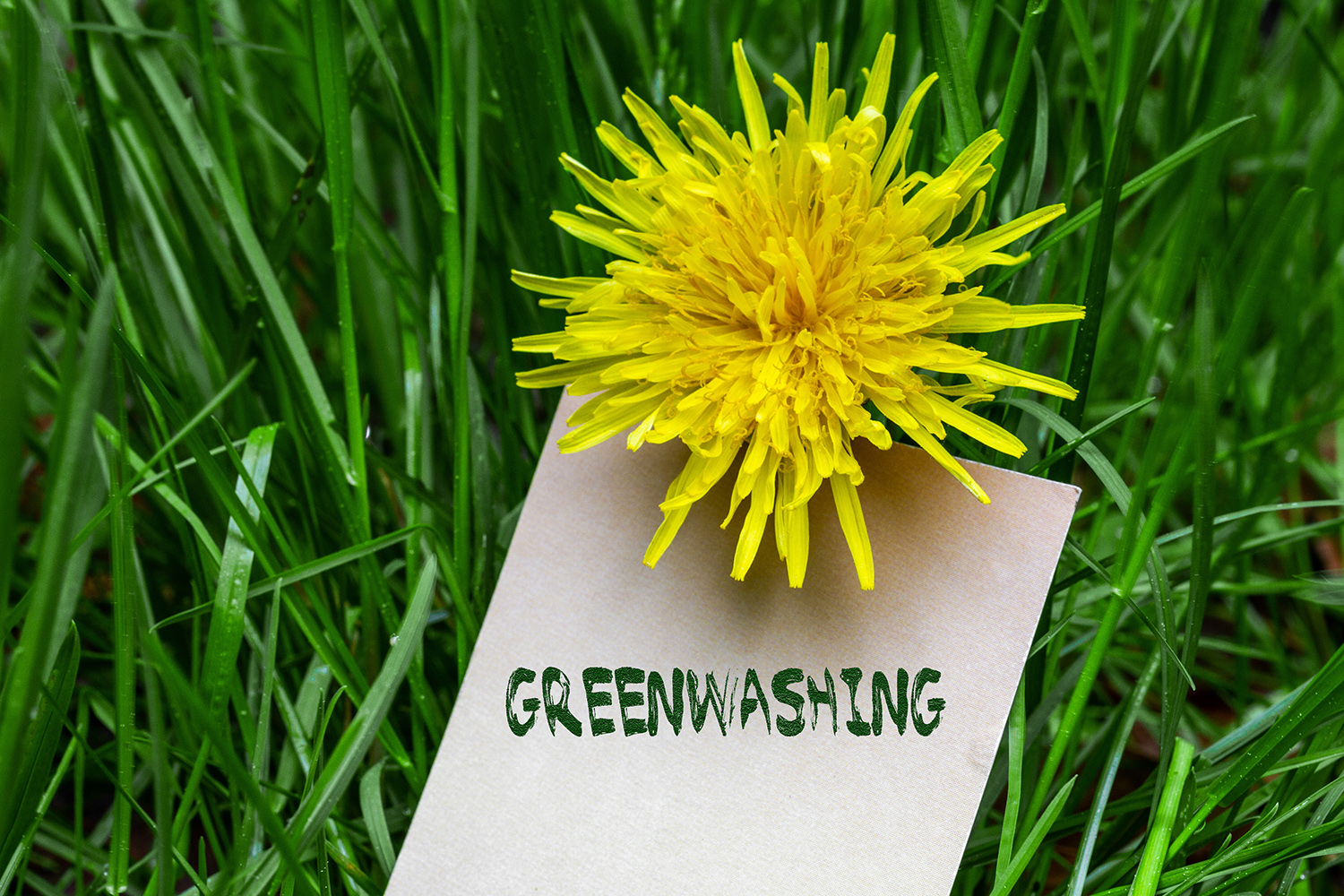Are you familiar with Greenwashing yet? It has become a prevailing term surrounding ESG, sustainability and zero carbon footprints that is being heavily scrutinized as of late. So what the heck is Greenwashing and why are businesses around the globe so concerned with it?
Plain and simple, Greenwashing is essentially when a company or organization spends more time and money on promoting themselves as being sustainable versus actually being more sustainable by minimizing their environmental impact. This duplicitous advertising method is used to gain ‘favor’ with consumers who want to support businesses that care about bettering the planet versus supporting businesses who are just interested in turning a profit.
For context, “Greenwashing” was coined by environmentalist Jay Westerveld in 1986 in an essay that criticized the irony of the “save the towel” movement in hotels. The essay noted that the hotel industry was touting the conservation and sustainability measures of not washing towels continuously but the same hotel industry was ignoring the massive amounts of additional waste that was occurring throughout the hotel. After further analysis, it became evident that the intent of the limited towel washing measures were not for sustainability but the true intent was on reducing expenses. This is a classic example of Greenwashing.
Why Greenwashing?
As today’s society shifts further and further towards environmentally conscious goods and services, the pressure on businesses has intensified and so have the clever marketing campaigns to make a company look and appear more sustainable. Those that don’t have ‘green’ policies are often chastised or avoided by consumers. This shift is pressuring companies to adopt environmentally conscious practices as the demand to go ‘green’ has translated into the number of businesses that claim green credentials when in fact, many don’t actually have any and thus they are actively engaging in Greenwashing. A business that says it is environmentally conscious and friendly is immediately more appealing to many than a firm that does not care about, or is actively destroying, the environment.
Many companies don’t mean to be deceiving, they simply don’t know that they’re doing it. That, or they don’t have the expertise to know what is truly environmentally beneficial, and what isn’t. Of course it is obvious that being ethical drives profitability. A report by McKinsey found that Gen Z (people born roughly between 1996 and 2010) are more likely to spend money on companies and brands seen to be ethical. Additionally, Nielson’s Global Corporate Sustainability Report showed that 66% of consumers would spend more on a product if it comes from a sustainable brand, and that jumps to 73% among millennials. This data shows that there clearly is a market for companies that have adopted and implemented to be more sustainable and socially conscious.
Being accused of Greenwashing can definitely hurt a company’s credibility and image, which can cause long-term damage as consumers grow skeptical of that company’s products, services or mission. And if word gets out that a particular company wasn’t all that honest with their sustainability claims, it can cause serious reputation damage with detrimental consequences.
Greenwashing in 2022
The tide is definitely turning when it comes to Greenwashing in 2022. Some are predicting an end to it as a business practice, as global calls for a zero-tolerance policy on Greenwashing are growing. Global Banking and Finance Review talked in detail about this saying that “Companies accused of misleading customers and shareholders about their ESG credentials may start facing legal implications along with reputational damage.”
Additionally, the UK Competition and Markets Authority (CMA) published their Green Claims Code in 2021 and announced that a “full review” will begin in January 2022. The Code implies that ESG credentials must be truthful, accurate and substantiated, suggesting that, “businesses should be able to back up their claims with robust, credible and up to date evidence.”
While the legislation used to enforce the Green Claims Code is not new (or specific to Greenwashing), it hints at increased scrutiny and more targeted regulation of deceptive claims ahead. Cracking down on misrepresentation and encouraging transparency and accountability are imperative to ensure a level playing field and to protect ESG credibility overall.
Notably, the Federal Trade Commission is scheduled to review its “Green Guides” in 2022, for the first time in a decade. According to Goby, between March and June 2021, the SEC received over 5,000 public comments on climate change disclosures, with a majority in favor of more severe disclosure standards to control Greenwashing. So it could be easy to predict that changes will definitely be coming down the pipeline sooner than later.
There has also been a wave of lawsuits surrounding Greenwashing which has garnered the attention of many in the corporate, financial and insurance sectors and this is expected to increase in 2022. The many lawsuits and complaints have also drawn the attention of the Securities & Exchange Commission (SEC) which could result in investigations and penalties issued to businesses as a result of Greenwashing. The future is clear and shareholders and business owners should expect to see a continued uptick in activity focused on Greenwashing and the SEC is going to be the agency to lead that charge. According to the National Law Review, companies of all types that are advertising, marketing, drafting ESG statements, or disclosing information as required to the SEC must pay extremely close attention to the language used in all of these types of documents or else run the risk of SEC scrutiny. Given the SEC’s specific targeting of ESG-related issues beginning in 2021, the National Law Review predicts that 2022 will see a great degree of SEC enforcement action seeking to curb overzealous marketing language or statements that it sees as Greenwashing.
Building a business model that adopts and implements true ESG and sustainability driven initiatives is essential for continued business success as more and more consumers are choosing businesses that have adopted true sustainability measures and it is imperative that the global business community implements mandates and other credible third-party certification that can tangibly demonstrate that a company is truly checking the boxes for sustainability versus Greenwashing.
Weather Source is a thought leader on ESG and sustainability. In furtherance of these efforts, The Climate Risk Enterprise Group, a joint initiative between Weather Source and our parent Pelmorex Corp./The Weather Network has recently been formed. This mission critical division was formed to be a key consultant on weather and climate-related information as further mandates and compliance issues evolve to require comprehensive climate risk intelligence. Since its inception, the goal and structure of the group is to supply the groundwork for understanding and measuring the probability of weather phenomena across the globe for businesses in all industries. By intertwining our depth of knowledge of historical weather teamed with current climate conditions we will be a key consultant for climate trends, mandates and compliance requirements moving into the future.
Is your business ready for climate risk and the mandates and compliance issues surrounding ESG? Talk to our team about how we can help your business prepare.



